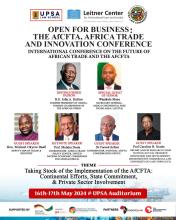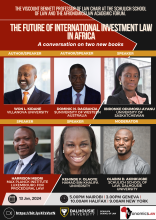Project-Affected Local Communities, Africa and the Multilateral Investment Court
This essay discusses the opportunity the proposed multilateral investment court (‘MIC’) presents for states to holistically address the imbalances in international investment law by granting local communities a binding international remedy for corporate human rights violations and other investment-related harms. It argues that concerns about granting local communities such a right are overstated especially since it can be done with sufficient guardrails to prevent an upset to the ISDS system. For African states, this should be a priority in the MIC negotiations given corporate abuses of their local communities, especially in natural resource-rich areas, and their obligation under Article 21(5) of the African Charter on Human and Peoples’ Rights 1981 (‘African Charter’) to prevent or remedy such exploitation.

